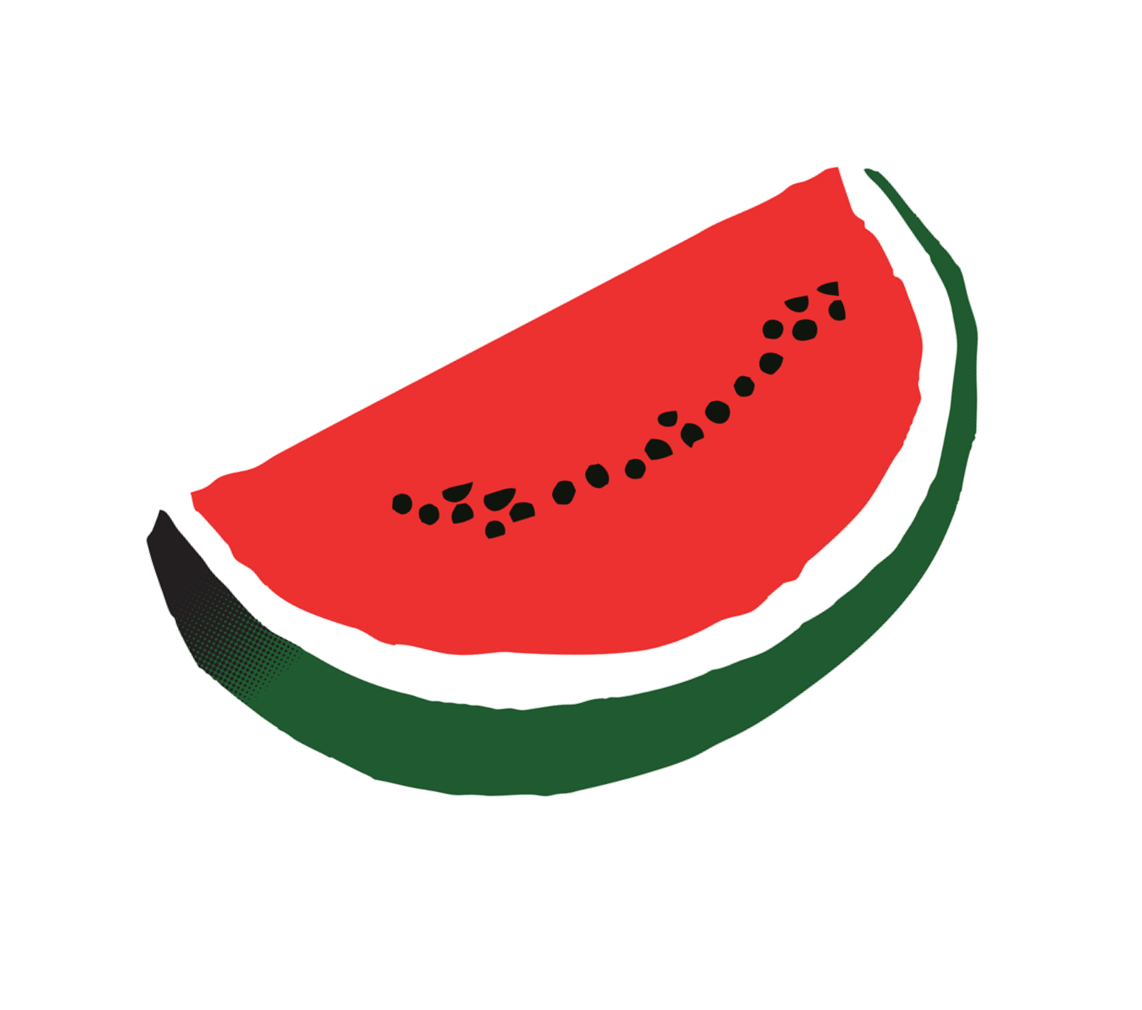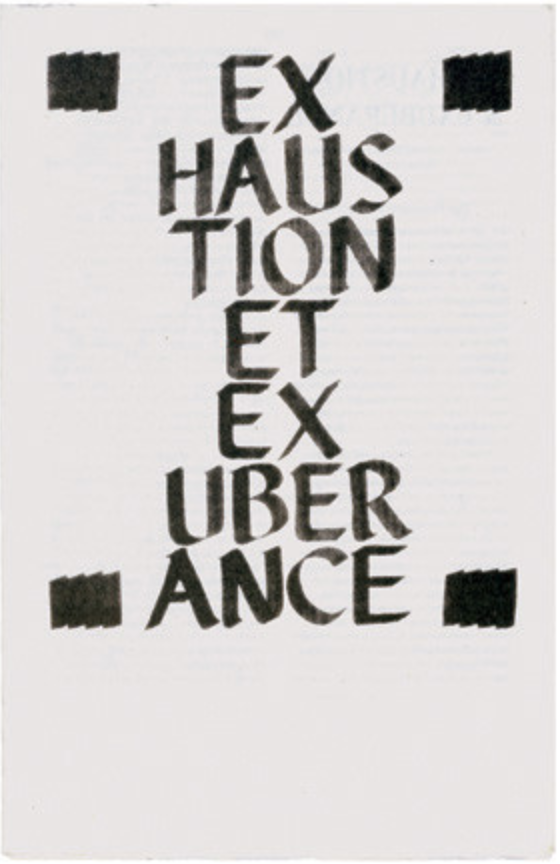What We’re Thinking About Right Now

May 2024
“Residencies Reflected” Edited by Irmeli Kokko
Residencies Reflected is a collection of new writing on artist residencies and mobility, reflecting the current state of transition and quest for various forms of sustainability – artistic, poetic, psychological, social, ecological – as well as for experimentation and artistic freedom.
This anthology, edited by the Finnish curator and residency professional Irmeli Kokko, is partly based on the Summer Well symposium at the Saari Residence in Finland in 2021 and includes two articles by ARRC members Miriam La Rosa and Pau Catà
You can also download the book as a pdf file HERE
“Residencies Reflected” Edited by Irmeli Kokko
Residencies Reflected is a collection of new writing on artist residencies and mobility, reflecting the current state of transition and quest for various forms of sustainability – artistic, poetic, psychological, social, ecological – as well as for experimentation and artistic freedom.
This anthology, edited by the Finnish curator and residency professional Irmeli Kokko, is partly based on the Summer Well symposium at the Saari Residence in Finland in 2021 and includes two articles by ARRC members Miriam La Rosa and Pau Catà
You can also download the book as a pdf file HERE

March 2024
Fatoş Üstek, “The Art Institution of Tomorrow, Reinventing the Model”
The Art Institution of Tomorrow is a unique manifesto for raising the standard of institutional practices across the world. It suggests that existing art institutions are not equipped to deal with the radical social, economic and environmental change we are living through and engage with advancement in the arts, and that unless they re-focus on their core purpose and fundamentally transform their organisational structure and operational models, they will start to lose their relevance and influence. Built on an extensive study of non-profit visual-arts organisations and the creative industries at large, and incorporating interviews with institutional leaders from throughout the sector, the book expresses a clear outline of change that art institutions will need to undergo in order to maintain their relevance for generations to come.
More info HERE
Fatoş Üstek, “The Art Institution of Tomorrow, Reinventing the Model”
The Art Institution of Tomorrow is a unique manifesto for raising the standard of institutional practices across the world. It suggests that existing art institutions are not equipped to deal with the radical social, economic and environmental change we are living through and engage with advancement in the arts, and that unless they re-focus on their core purpose and fundamentally transform their organisational structure and operational models, they will start to lose their relevance and influence. Built on an extensive study of non-profit visual-arts organisations and the creative industries at large, and incorporating interviews with institutional leaders from throughout the sector, the book expresses a clear outline of change that art institutions will need to undergo in order to maintain their relevance for generations to come.
More info HERE

February 2024
Italo Calvino, Le città invisibili (Invisible Cities)
In Invisible Cities Marco Polo conjures up cities of magical times for his host, the Chinese ruler Kublai Khan, but gradually it becomes clear that he is actually describing one city: Venice. As Gore Vidal wrote 'Of all tasks, describing the contents of a book is the most difficult and in the case of a marvellous invention like Invisible Cities, perfectly irrelevant.'This is a captivating meditation on culture, language, time, memory and the nature of human experience.
More info HERE
Italo Calvino, Le città invisibili (Invisible Cities)
In Invisible Cities Marco Polo conjures up cities of magical times for his host, the Chinese ruler Kublai Khan, but gradually it becomes clear that he is actually describing one city: Venice. As Gore Vidal wrote 'Of all tasks, describing the contents of a book is the most difficult and in the case of a marvellous invention like Invisible Cities, perfectly irrelevant.'This is a captivating meditation on culture, language, time, memory and the nature of human experience.
More info HERE

February 2024
Kari Conte and Susan Hapgood (eds.), “Bringing Worlds Together: A Rethinking Residencies Reader”
This is the first anthology on art residencies published in the United States and a companion to the Rethinking Residencies Symposium, organized in december 2021. The three-day event brought together artists, curators, scholars, and residency organizations to address residency programs as critical sites of research and production within the visual arts. The eleven essays and three conversations in “Bringing Worlds Together” reflect on art residencies at present—at a time when residencies play a critical role in art’s ecosystem. They address a cross-section of ideas about residency programs, bound together by a deep concern for the care and ethics that go into shaping residency programs and hosting artists and curators.
The publication is available for download at this link
Kari Conte and Susan Hapgood (eds.), “Bringing Worlds Together: A Rethinking Residencies Reader”
This is the first anthology on art residencies published in the United States and a companion to the Rethinking Residencies Symposium, organized in december 2021. The three-day event brought together artists, curators, scholars, and residency organizations to address residency programs as critical sites of research and production within the visual arts. The eleven essays and three conversations in “Bringing Worlds Together” reflect on art residencies at present—at a time when residencies play a critical role in art’s ecosystem. They address a cross-section of ideas about residency programs, bound together by a deep concern for the care and ethics that go into shaping residency programs and hosting artists and curators.
The publication is available for download at this link
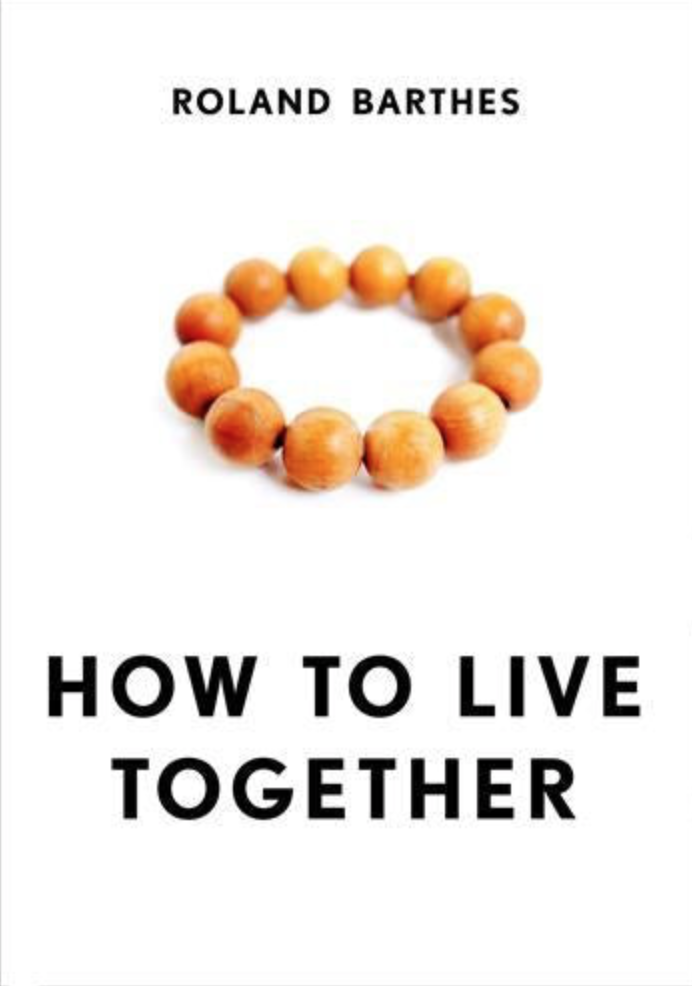
January 2024
How to Live Together. Novelistic Simulations of Some Everyday Spaces by Roland Barthes. Translated by Kate Briggs. Columbia University Press (2012)
How to Live Together predates both of these achievements, a series of lectures exploring solitude and the degree of contact necessary for individuals to exist and create at their own pace. A distinct project that sets the tone for his subsequent lectures, How to Live Together is a key introduction to Barthes's pedagogical methods and critical worldview.
In this work, Barthes focuses on the concept of "idiorrhythmy," a productive form of living together in which one recognizes and respects the individual rhythms of the other. He explores this phenomenon through five texts that represent different living spaces and their associated ways of life.
More info HERE
How to Live Together. Novelistic Simulations of Some Everyday Spaces by Roland Barthes. Translated by Kate Briggs. Columbia University Press (2012)
How to Live Together predates both of these achievements, a series of lectures exploring solitude and the degree of contact necessary for individuals to exist and create at their own pace. A distinct project that sets the tone for his subsequent lectures, How to Live Together is a key introduction to Barthes's pedagogical methods and critical worldview.
In this work, Barthes focuses on the concept of "idiorrhythmy," a productive form of living together in which one recognizes and respects the individual rhythms of the other. He explores this phenomenon through five texts that represent different living spaces and their associated ways of life.
More info HERE

December 2023
Maja Bekan and Angela Serino (eds.) “Between the Standing and the Inclined: Structures Supporting Change”, Kunstlicht Vol. 44, N. 4 (2023)
What is the inclined? Why support structures? And how can these help us speak about change—(because, yes, we still want many things around us to be different)?
Support is generally intended as something that holds up or serves as a foundation, provides a basis for the existence or subsistence of someone or something, keeps from yielding, and gives comfort. In this issue, M.Bekan and A.Serino have used support to speak of all that sustains and thus shapes an art practice, what allows someone to stand as an artist and art professional today in the absence of or despite certain systems, in the cracks of objective material constraints, turning them into opportunities for collective actions and self-empowerment.
With contributions by: Manuela Zammit and Alina Lupu, Patricia Healy McMeans, Eleonore Pano-Zavaroni and Kathrin Wolkowicz, Multiple Choice, Irena Borić, Mari Kalabegashvili, Gunndís Ýr Finnbogadóttir, Yasmine Ostendorf-Rodriguez, Toni Kritzer.
More info HERE
Maja Bekan and Angela Serino (eds.) “Between the Standing and the Inclined: Structures Supporting Change”, Kunstlicht Vol. 44, N. 4 (2023)
What is the inclined? Why support structures? And how can these help us speak about change—(because, yes, we still want many things around us to be different)?
Support is generally intended as something that holds up or serves as a foundation, provides a basis for the existence or subsistence of someone or something, keeps from yielding, and gives comfort. In this issue, M.Bekan and A.Serino have used support to speak of all that sustains and thus shapes an art practice, what allows someone to stand as an artist and art professional today in the absence of or despite certain systems, in the cracks of objective material constraints, turning them into opportunities for collective actions and self-empowerment.
With contributions by: Manuela Zammit and Alina Lupu, Patricia Healy McMeans, Eleonore Pano-Zavaroni and Kathrin Wolkowicz, Multiple Choice, Irena Borić, Mari Kalabegashvili, Gunndís Ýr Finnbogadóttir, Yasmine Ostendorf-Rodriguez, Toni Kritzer.
More info HERE
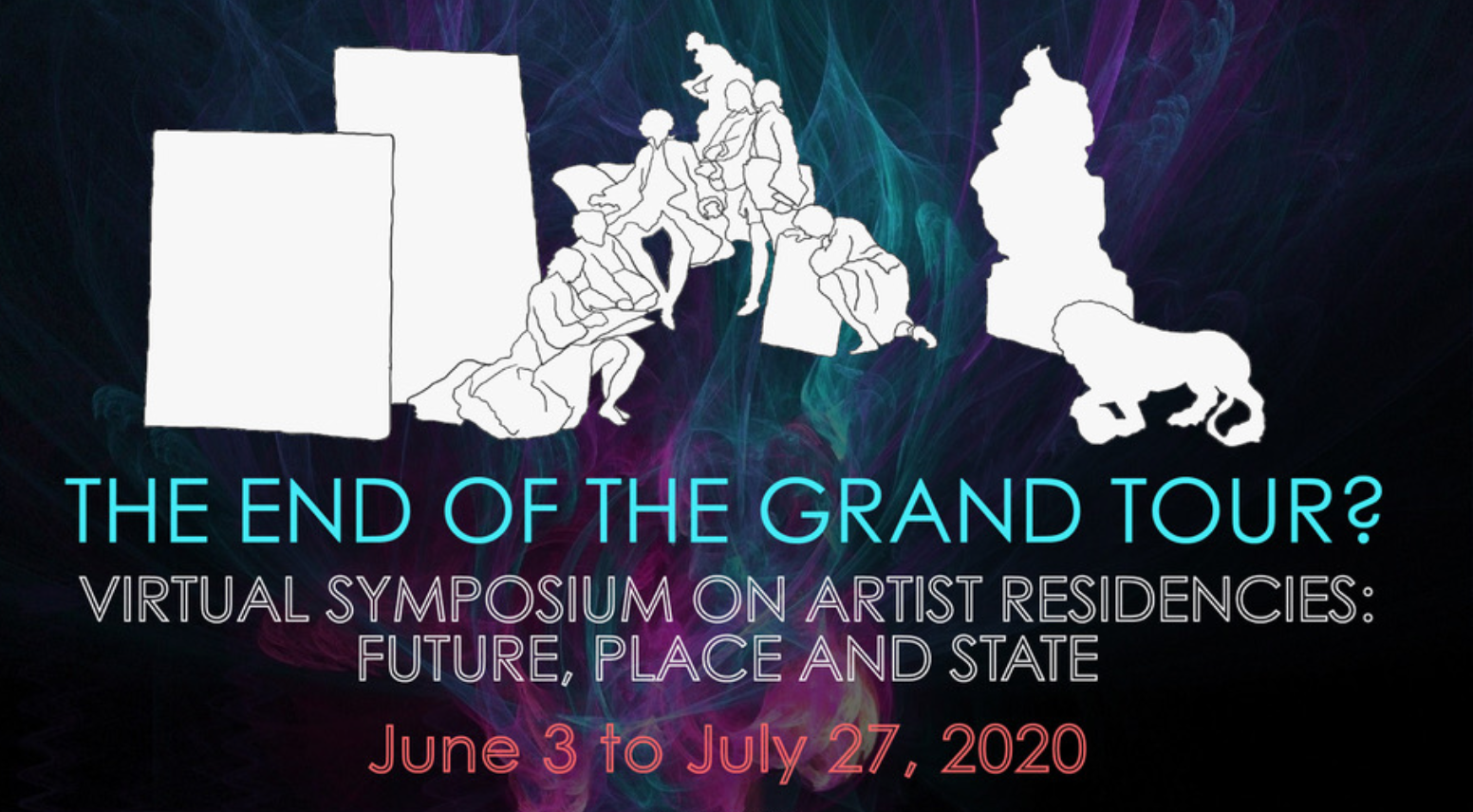
November 2023
“The End of the Grand Tour?”
Virtual sympossium organized by Arquetopia
It is indisputable that artist residencies have become crucial nodes for the art world, as they have expanded worldwide and exponentially in numbers in the last decades. Artist residencies provide much needed infrastructure and networks for the cultural sector; therefore, they have become sites of production and experimentation, spaces for research and sharing, and places where multiple artists and diverse ideas circulate. However, residencies are also burdened with the weight of history; they are subject to economic, geopolitical, and ideological pressures while constantly being reminded of the challenges of self-sustainability.
Trough five panel discussions The End of the Grand Tour? Virtual Symposium on Artist Residencies: Future, Place and State proposes to continue the critical dialogue on the subject of artist residencies especially in these tumultuous times, to re‑examine the limitations of sustainability alongside the legacy of history, including the dark implications of art in the invention of place, as a fantasy product of the mutual investment of power and images.
More info HERE
“The End of the Grand Tour?”
Virtual sympossium organized by Arquetopia
It is indisputable that artist residencies have become crucial nodes for the art world, as they have expanded worldwide and exponentially in numbers in the last decades. Artist residencies provide much needed infrastructure and networks for the cultural sector; therefore, they have become sites of production and experimentation, spaces for research and sharing, and places where multiple artists and diverse ideas circulate. However, residencies are also burdened with the weight of history; they are subject to economic, geopolitical, and ideological pressures while constantly being reminded of the challenges of self-sustainability.
Trough five panel discussions The End of the Grand Tour? Virtual Symposium on Artist Residencies: Future, Place and State proposes to continue the critical dialogue on the subject of artist residencies especially in these tumultuous times, to re‑examine the limitations of sustainability alongside the legacy of history, including the dark implications of art in the invention of place, as a fantasy product of the mutual investment of power and images.
More info HERE
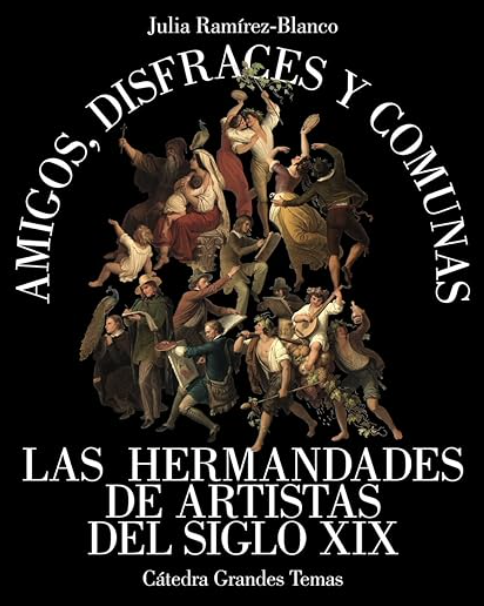
September 2023
Amigos, disfraces y comunas: Las hermandades de artistas del siglo XIX by Julia Ramírez-Blanco. Ediciones Cátedra (2022)
Historian Julia Ramírez-Blanco investigates in her latest book about the origin of contemporary artistic groups entering the history of the brotherhoods of painters from the past. From the pre -Raphaelites to Sisters in Art or many others that aspired to a lifestyle that combined their vital and artistic concerns.
More info HERE
Amigos, disfraces y comunas: Las hermandades de artistas del siglo XIX by Julia Ramírez-Blanco. Ediciones Cátedra (2022)
Historian Julia Ramírez-Blanco investigates in her latest book about the origin of contemporary artistic groups entering the history of the brotherhoods of painters from the past. From the pre -Raphaelites to Sisters in Art or many others that aspired to a lifestyle that combined their vital and artistic concerns.
More info HERE

July 2023
Carlo Rovelli, The Order of Time, Penguin Press (2019)
Time is a mystery that does not cease to puzzle us. Philosophers, artists and poets have long explored its meaning while scientists have found that its structure is different from the simple intuition we have of it. From Boltzmann to quantum theory, from Einstein to loop quantum gravity, our understanding of time has been undergoing radical transformations. Time flows at a different speed in different places, the past and the future differ far less than we might think, and the very notion of the present evaporates in the vast universe.
With his extraordinary charm and sense of wonder, bringing together science, art and philosophy, Carlo Rovelli unravels this mystery, inviting us to imagine a world where time is in us and we are not in time.
More info HERE
Carlo Rovelli, The Order of Time, Penguin Press (2019)
Time is a mystery that does not cease to puzzle us. Philosophers, artists and poets have long explored its meaning while scientists have found that its structure is different from the simple intuition we have of it. From Boltzmann to quantum theory, from Einstein to loop quantum gravity, our understanding of time has been undergoing radical transformations. Time flows at a different speed in different places, the past and the future differ far less than we might think, and the very notion of the present evaporates in the vast universe.
With his extraordinary charm and sense of wonder, bringing together science, art and philosophy, Carlo Rovelli unravels this mystery, inviting us to imagine a world where time is in us and we are not in time.
More info HERE

June 2023
“On Care. A Journey into the Relational Nature of Artists' Residencies” (2023)
Editors: Pawel Mendrek, Ewa Zasada for the Mobile Art Lab & Academy of Fine Arts and Design Katowice, Elke aus dem Moore & Denise Helene Sumi for Akademie Schloss Solitude, Ika Sienkiewicz-Nowacka for Ujazdowski Castle Centre for Contemporary Art, Bojana Panevska for TransArtists | DutchCulture
The publication revolves around the polarized nature of the resident-host encounter.
From the outset, the editors did not aim to present an analysis of the operation of individual spheres of artist residencies, but rather to compile in dialogue a polyphonic publication that illustrates the nuances of residency work and artists' experiences, as well as the unstable constellations of artist residencies with its open-ended structure. Artist residency programs can serve as a model for dealing with the ever-changing contemporary world and societies. All this makes it possible to fulfill the dream of a world where there is a balance between acceptance and separateness. This world offers authenticity, permanent change and constant transformation.
More info HERE
“On Care. A Journey into the Relational Nature of Artists' Residencies” (2023)
Editors: Pawel Mendrek, Ewa Zasada for the Mobile Art Lab & Academy of Fine Arts and Design Katowice, Elke aus dem Moore & Denise Helene Sumi for Akademie Schloss Solitude, Ika Sienkiewicz-Nowacka for Ujazdowski Castle Centre for Contemporary Art, Bojana Panevska for TransArtists | DutchCulture
The publication revolves around the polarized nature of the resident-host encounter.
From the outset, the editors did not aim to present an analysis of the operation of individual spheres of artist residencies, but rather to compile in dialogue a polyphonic publication that illustrates the nuances of residency work and artists' experiences, as well as the unstable constellations of artist residencies with its open-ended structure. Artist residency programs can serve as a model for dealing with the ever-changing contemporary world and societies. All this makes it possible to fulfill the dream of a world where there is a balance between acceptance and separateness. This world offers authenticity, permanent change and constant transformation.
More info HERE

May 2022
Boris Groys “Philosophy of Care, Verso” (2022)
Our current culture is dominated by the ideology of creativity. One is supposed to create the new and not to care about the things as they are. This ideology legitimises the domination of the “creative class” over the rest of the population that is predominantly occupied by forms of care – medical care, child care, agriculture, industrial maintenance and so on. We have a responsibility to care for our own bodies, but here again our culture tends to thematize the bodies of desire and to ignore the bodies of care – ill bodies in need of self-care and social care.But the discussion of care has a long philosophical tradition. The book retraces some episodes of this tradition - beginning with Plato and ending with Alexander Bogdanov through Hegel, Heidegger, Bataille and many others. The central question discussed is: who should be the subject of care? Should I care for myself or trust the others, the system, the institutions? Here, the concept of the self-care becomes a revolutionary principle that confronts the individual with the dominating mechanisms of control.
More info HERE
Boris Groys “Philosophy of Care, Verso” (2022)
Our current culture is dominated by the ideology of creativity. One is supposed to create the new and not to care about the things as they are. This ideology legitimises the domination of the “creative class” over the rest of the population that is predominantly occupied by forms of care – medical care, child care, agriculture, industrial maintenance and so on. We have a responsibility to care for our own bodies, but here again our culture tends to thematize the bodies of desire and to ignore the bodies of care – ill bodies in need of self-care and social care.But the discussion of care has a long philosophical tradition. The book retraces some episodes of this tradition - beginning with Plato and ending with Alexander Bogdanov through Hegel, Heidegger, Bataille and many others. The central question discussed is: who should be the subject of care? Should I care for myself or trust the others, the system, the institutions? Here, the concept of the self-care becomes a revolutionary principle that confronts the individual with the dominating mechanisms of control.
More info HERE

June 2022
Planting and Becoming - Journal #128 June 2022
eflux
Several autonomous farming collectives
The global food system is a violent mess. It is rooted in neocolonialism, manufactured scarcity, and mass alienation. The enclosure of farms and subsistence forms of life has destroyed social and collective knowledges of how to produce and share food. It’s no accident that attempts to create food autonomy and collectivize its production and distribution, even on a local scale, have been met with state violence—ask any Food Not Bombs chapter. For this issue of e-flux journal on agriculture and the social bonds inherent to food, we have invited autonomous collectives, farmers, and artists to talk about their projects in short communiques from the garden, forest, or pasture. Spread over much of Turtle Island, they offer tactics to uproot capital and share stories about the lands they inhabit.
Planting and Becoming - Journal #128 June 2022
eflux
Several autonomous farming collectives
The global food system is a violent mess. It is rooted in neocolonialism, manufactured scarcity, and mass alienation. The enclosure of farms and subsistence forms of life has destroyed social and collective knowledges of how to produce and share food. It’s no accident that attempts to create food autonomy and collectivize its production and distribution, even on a local scale, have been met with state violence—ask any Food Not Bombs chapter. For this issue of e-flux journal on agriculture and the social bonds inherent to food, we have invited autonomous collectives, farmers, and artists to talk about their projects in short communiques from the garden, forest, or pasture. Spread over much of Turtle Island, they offer tactics to uproot capital and share stories about the lands they inhabit.
May 2022
Exhaustion et Exhuberance
Jan VanWoert
This slow [person/plant] may turn out to be a guardian of the social equilibrium, protecting peace and sanity by preventing restless performers like you from changing things for the worse.
*edit ours, changed from “man” in original text.
Exhaustion et Exhuberance
Jan VanWoert
This slow [person/plant] may turn out to be a guardian of the social equilibrium, protecting peace and sanity by preventing restless performers like you from changing things for the worse.
*edit ours, changed from “man” in original text.

